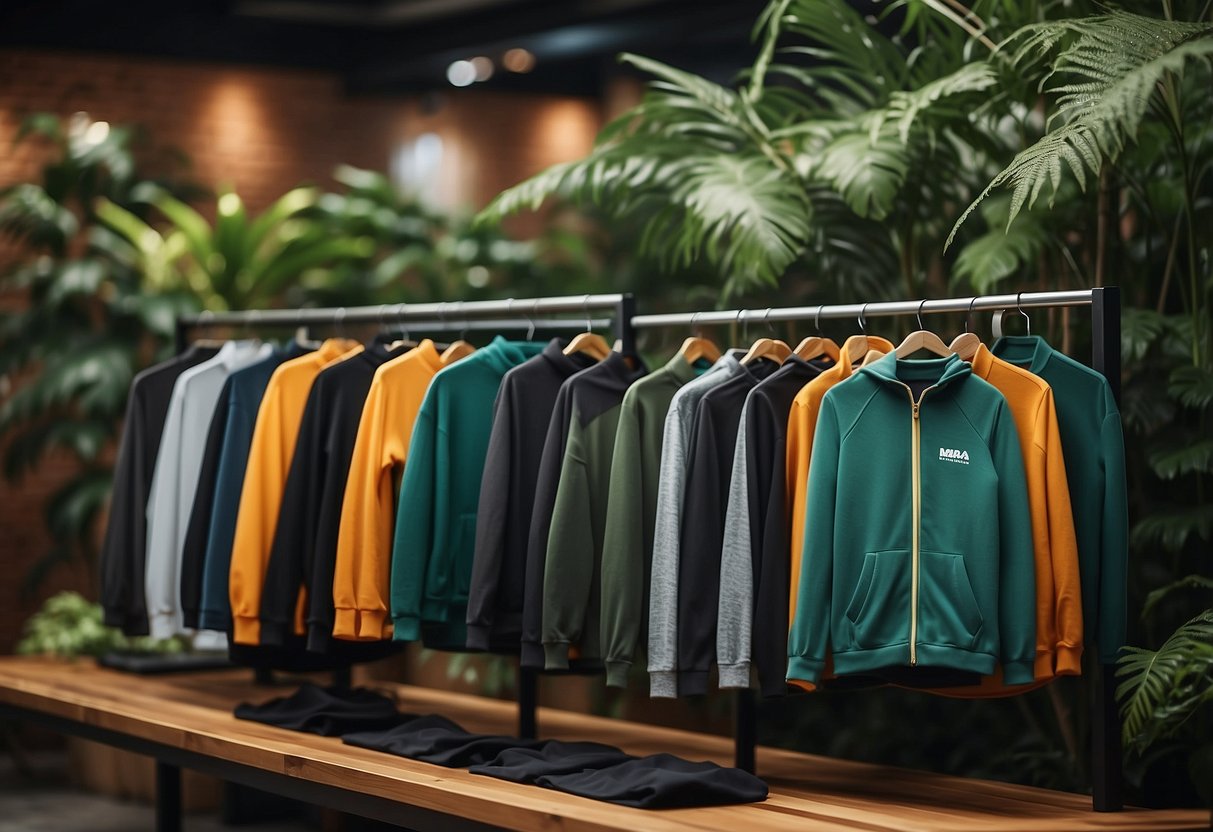
Benefits of Eco-Friendly Activewear
Choosing eco-friendly activewear provides significant advantages for both the environment and personal well-being. These benefits include reduced environmental impact and enhanced health and comfort for the wearer.
Sustainability and Environmental Impact
Eco-friendly activewear brands prioritize sustainability, often using materials such as recycled polyester, organic cotton, and bamboo. These materials use fewer natural resources, produce less waste, and emit lower levels of greenhouse gases compared to traditional fabrics.
Manufacturing processes are optimized to minimize water use and chemical discharge, reducing pollution. Brands often commit to ethical labor practices, ensuring fair wages and safe working conditions. Products’ durability also extends their life cycle, decreasing the frequency of garment replacement and, in turn, waste production. These factors collectively contribute to a more sustainable future.
Health and Comfort
Eco-friendly activewear tends to be free from harmful chemicals, reducing skin irritation and the risk of allergic reactions. Natural materials like organic cotton and bamboo are breathable and moisture-wicking, keeping the skin dry and comfortable during intense workouts.
The use of non-toxic dyes and finishes enhances the fabric’s softness and safety. Fit and function are not compromised, as these garments are designed to provide maximum flexibility and support. As a result, users can enjoy enhanced comfort and performance while prioritizing their health.
Materials Used in Eco-Friendly Activewear
Eco-friendly activewear brands are focusing on materials that minimize environmental impact. These materials include organic cotton, recycled polyester, and bamboo fiber, each offering unique benefits for sustainability and performance.
Organic Cotton
Organic cotton is grown without synthetic pesticides or fertilizers. This reduces soil and water pollution and lowers the risk of harming wildlife. It is also known for being softer and more breathable than conventional cotton, making it comfortable for activewear.
Farmers use natural processes such as crop rotation to maintain soil health. Compared to conventional methods, organic cotton farming uses less water and energy. While it can be more expensive and less durable than synthetic fibers, its eco-friendly profile makes it a popular choice for sustainable brands.
Recycled Polyester
Recycled polyester is created by breaking down used plastic bottles and converting them into fibers. This process significantly reduces the need for virgin plastic, conserving resources and reducing greenhouse gas emissions. Recycled polyester retains the same qualities as virgin polyester, such as durability, moisture-wicking properties, and ease of care.
Activewear made from recycled polyester is often just as performance-driven as those made from conventional polyester. Despite the energy required to recycle plastic, it still represents a more sustainable option compared to new synthetic fibers. Some challenges include the need for thorough cleaning of plastics before recycling.
Bamboo Fiber
Bamboo fiber clothing is made from bamboo plants known for their rapid growth and minimal need for pesticides or fertilizers. These plants also improve soil and air quality. Bamboo fiber is breathable, moisture-wicking, and has natural anti-bacterial properties, which makes it a great material for activewear.
Manufacturing bamboo fiber usually involves converting bamboo into a pulp and then spinning it into yarn. This process can be more environmentally friendly than the production of conventional fabrics. However, some methods use harsh chemicals, making it essential to choose brands that employ eco-friendly processing techniques.
Certifications and Standards
When looking for eco-friendly activewear, certifications and standards are crucial. Global Organic Textile Standard (GOTS) and OEKO-TEX Standard 100 are some of the most recognized standards ensuring products meet high environmental and safety criteria.
Global Organic Textile Standard (GOTS)
GOTS is a globally recognized certification that ensures textiles are made from organic fibers. The certification covers the processing, manufacturing, packaging, labeling, trading, and distribution of all textiles. For a product to be GOTS certified, it must contain at least 70% organic fibers.
GOTS also mandates ecological and social criteria. These include wastewater treatment in all wet-processing units and a ban on toxic heavy metals, aromatic solvents, and GMOs. Social compliance criteria cover fundamental rights as defined by the International Labour Organization (ILO), such as fair wages, safe working conditions, and a ban on child labor. This makes GOTS one of the most reputable standards in the textile industry.
OEKO-TEX Standard 100
OEKO-TEX Standard 100 focuses on ensuring that textiles are free from harmful substances. The certification applies to all stages of production, from raw materials to finished products, ensuring that every component is free from harmful chemicals. Products with OEKO-TEX certification are tested for substances such as heavy metals, pesticides, and formaldehyde.
OEKO-TEX Standard 100 also sets limits on the amount of chemicals that can be present in the final product. This certification is important for consumers who want to ensure that their activewear is not only eco-friendly but also safe for direct contact with the skin. The rigorous testing and stringent standards make OEKO-TEX a trusted certification for sustainable and safe textiles.



